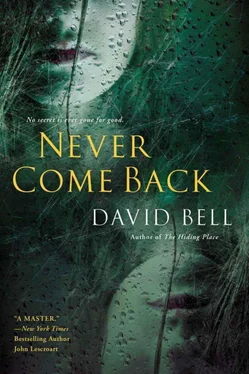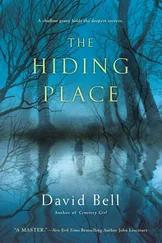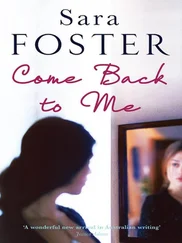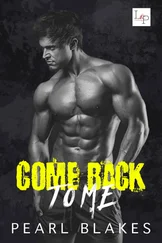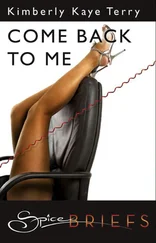Laney Katz Becker is the best literary agent, guide, and advocate I could wish for. Thanks for always demanding the best and getting the best, Laney. And thanks to everyone at Lippincott Massie McQuilkin Literary Agents for their support.
And finally, special thanks to the one and only Molly McCaffrey for love, advice, and support, for tolerating my habit of watching the Reds and for walking in the cemetery with me even on Halloween. What more could I ask for?

David Bellis currently an associate professor of English at Western Kentucky University in Bowling Green, Kentucky. He received an MA in creative writing from Miami University in Oxford, Ohio, and a PhD in American literature and creative writing from the University of Cincinnati. He has been nominated for the Pushcart Prize twice. His previous novels are Cemetery Girl and The Hiding Place .
CONNECT ONLINE
www.davidbellnovels.com
www.facebook.com/davidbellnovels
www.twitter.com/davidbellnovels
Cemetery Girl

The Hiding Place
Readers Guide
NEVER COME BACK
by David Bell
QUESTIONS FOR DISCUSSION
1. Like all mothers and daughters, Elizabeth and Leslie have a complicated relationship. Is the conflict between them heightened because of Leslie’s determination to give Ronnie the best life possible and Elizabeth’s drive for education and independence?
2. Elizabeth is reluctant to commit to caring for Ronnie. Can you understand why she feels this reluctance? Or do you think she has an obligation to care for her brother no matter what? What do you think you would do in a similar situation?
3. Having a family member with special needs places an extra strain on a family. How do you think Leslie, Elizabeth, and Paul handle Ronnie’s special needs?
4. Elizabeth has chosen to come home to attend graduate school. Do relationships between parents and children change for the better as the child becomes an adult?
5. Elizabeth and Dan have a complicated relationship. How do you feel about the way they get along? Is Elizabeth always fair to Dan?
6. When Elizabeth finally meets Beth, they obviously have a lot of catching up to do. What do you think of the way the two sisters try to get to know each other under these difficult and unusual circumstances?
7. Elizabeth relies on her student Neal Nelson for help. What do you think of Neal and his role in the book? Have you ever dealt with someone like him in your life?
8. Gordon Baxter plays a key role in the book. What did you think of him when he first showed up at Elizabeth’s apartment and told her he had been married to Leslie? Did you initially feel any empathy for him? At what point did you realize he was a truly dangerous man?
9. Paul seems like a caring and loving uncle at the beginning of the book. What was your reaction when you found out his secrets in the final chapters? Why do you think he did the things he did? Do you think he should receive any sympathy?
10. Beth wanted to get away from her town and her family. Is this a natural desire that a lot of children have? Is it understandable that she felt so ashamed of the direction her life had taken that she had a hard time reestablishing contact with her mother?
11. In the end, Elizabeth decides to take on the role of caring for Ronnie. Does it surprise you that she decides to do this? Do you think she’s going to make this work and still have the life she wants to have?
12. The novel closes with Leslie’s three children visiting her grave. Are the three of them a family now? Will they have an easy time adjusting to being in one another’s lives, or have the real challenges of being a family just begun?
Excerpt from that Hiding Place

What do you remember from that day, Janet?
Janet remembered the heat. The way it shimmered in waves in the distance, making the edges of the trees, the cars in the parking lot blurry and indistinct. Wherever she stepped, the grass crackled or the dirt puffed. The heat rose from the ground and scorched her feet through the soles of her cheap plastic shoes.
She was seven years old and in charge of her baby brother for the first time ever.
Janet watched Justin. She thought of him as a dumb four-year-old, a silly kid with a bowl of blond hair and a goofy smile. He sat with the other kids in the sandbox, scooping piles of sand into mounds with his hands, then smoothing them over. Back and forth like that. Sand up, sand down. Dumb and pointless. Something little kids would do. She watched him. Carefully.
But no, that wasn’t right. That wasn’t right at all…
Justin wasn’t silly. And he didn’t smile all the time. He was a quiet kid. A loner. He sat in the sandbox alone that day. And he didn’t smile much. Not much at all. No one in her family smiled much, not when she looked back on her childhood… or even her life now.
What did she remember from that day? What did she really remember? It was so hard to—
Michael showed up.
She remembered that.
Michael showed up, her seven-year-old playmate, the boy from the neighborhood and school. Their parents were friends. They played together all the time. Her boyfriend, she liked to think and giggle to herself, although they never touched each other. Never hugged or kissed or held hands. They were too young for that, too young for a lot of things.
But Michael showed up wearing denim shorts with a belt like a long rope and sneakers with holes in them. His hair hung in his face, and he brushed it out of his eyes constantly. He lived on the other side of the park. And so Michael called her name, and when he did her heart jumped and she turned away from the sandbox and the swings and the other kids. And she followed Michael wherever he went. Across the playground, over the baseball diamond, over by the trees. She followed him.
Is that all she did? Run across the playground?
It was enough. She let Justin out of her sight. Dad was at work and Mom was at home, and Mom let them go to the playground alone that day for the first time ever, but it didn’t seem like a big deal. The park was near the school and the church and the other kids would be there, other kids they knew and even some parents. And all Mom said on that day when they left the house was, “Janet, don’t let Justin out of your sight. He’s a little boy…”
But she did. She let Justin out of her sight.
Did she see the man?
Janet can’t say anymore. She’s seen his face so many times. At the trial. In the newspaper. The mug shot. His face stoic, his eyes round, the whites prominent. His full lips, his black face. Not really a man. Now when she looks at the face, she sees a kid. Seventeen when he was arrested, but tried as an adult. He would have looked like an adult back then, that hot day in the park…
But she doesn’t know if she saw him.
Other people did. Adults and kids. He was in the park, talking to kids at the sandbox and the swings. He carried Justin, according to some of the witnesses. He paid special attention to her brother, they said. Walked around with him. Talked to him. Lifted him on his shoulders.
Читать дальше
